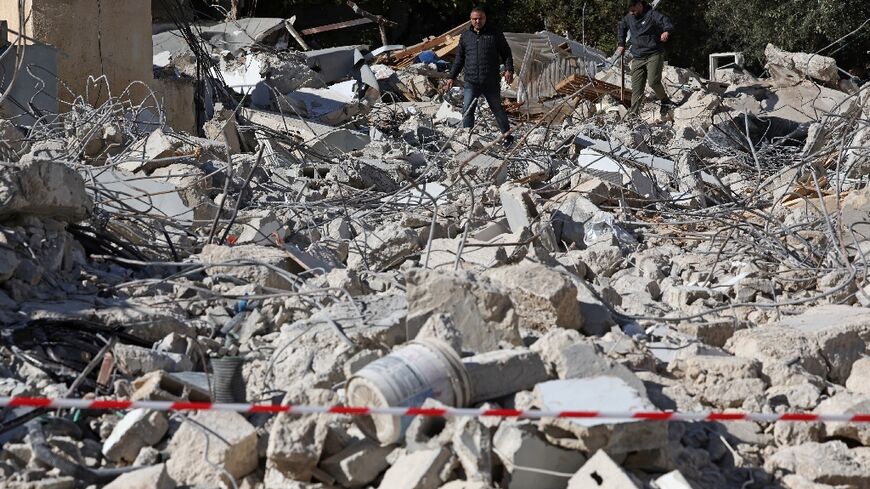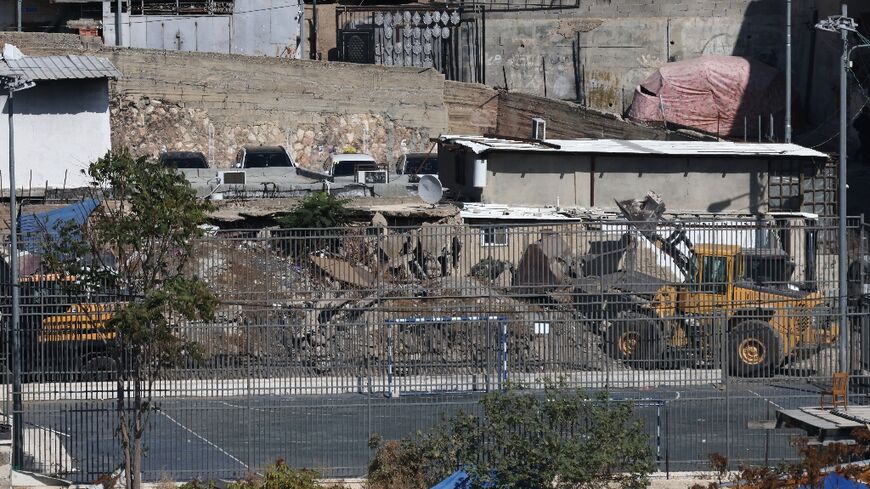Gaza home demolitions stir Palestinian frustration

Ramadan Abu Saif looked on as bulldozers ploughed into his neighbour's Gaza City home, knowing his could be next as an infrastructure project surges forward in the impoverished Palestinian enclave.
Last month, Hamas Islamists who govern Gaza began demolishing 62 houses at Al-Shati refugee camp as they widen the territory's main coastal road, with Egyptian and Qatari funding.
Most of the affected residents accepted financial compensation totalling some $3 million in exchange for giving up their homes, Hamas government spokesperson Salameh Maarouf said.
But a handful have refused, instead facing down a move they say is destroying their community.
Every morning for around a week, families -- many of them refugees in Gaza from the 1948 conflict following Israel's creation -- watched as their houses were reduced to rubble.
Abu Saif told AFP he supported the road project but not if it meant losing both his two-storey home and his cafe next door which looks out to the sea.
The 58-year-old, whose family was displaced from Hamama -- now in southern Israel -- almost 75 years ago, said he had been offered around $225,000 for the house, a sum he said was "unfair".
"If they demolish my house, it means the death of my memories and the memories of my grandparents, father and mother," he said.
- 'Positive response' -
Hamas took control of Gaza in 2007 and has faced increasing pressure to improve living standards for the territory's 2.3 million residents despite a crippling Israeli blockade.
Hamas spokesman Maarouf described the road widening project as "vital" for addressing traffic jams that have long plagued the area.
"We held many meetings with the (home) owners... in the past weeks, and there was a positive response and desire from almost everyone," he said.
A community centre which hosts a football field and halls for table tennis and parkour is also slated for demolition, as well as several United Nations administrative buildings.
An official at the UN agency for Palestinian refugees, UNRWA, said "we have nothing to do with the demolition".
The agency withdrew from several facilities in the area "at the request of the (Hamas) government", the UN official said, requesting anonymity as they were not authorised to speak to the media.
Kamal Saidam, 51, grew up playing sports in the community centre and was among those set to lose his house.
He said he was "not against" the road project but objected to it causing hardship to the community.
He watched on angrily as workers removed the last of the community centre's furniture in anticipation of its demolition.
"This club is one of the symbols of the camp," he said.
"I cannot imagine being displaced from here."








